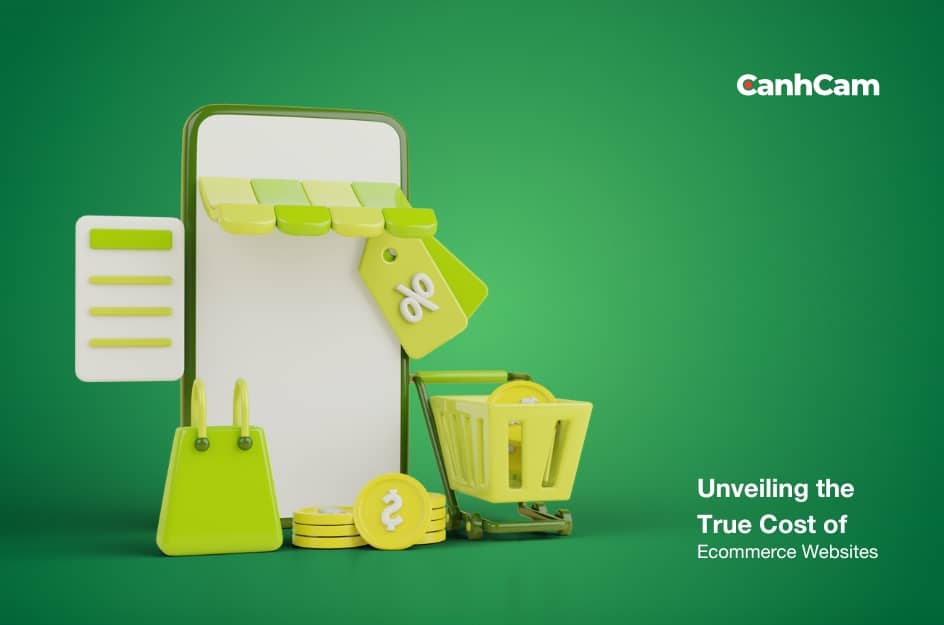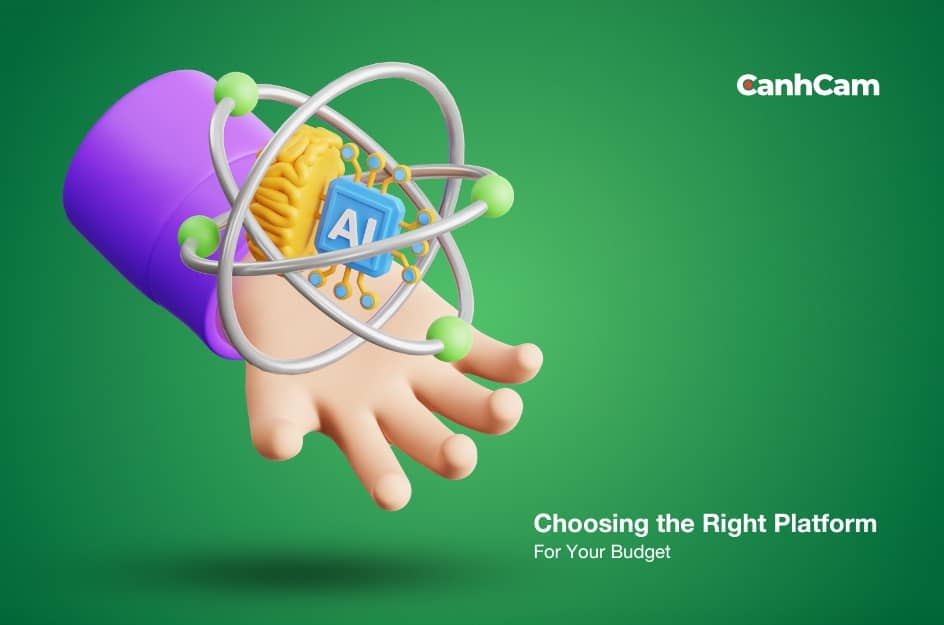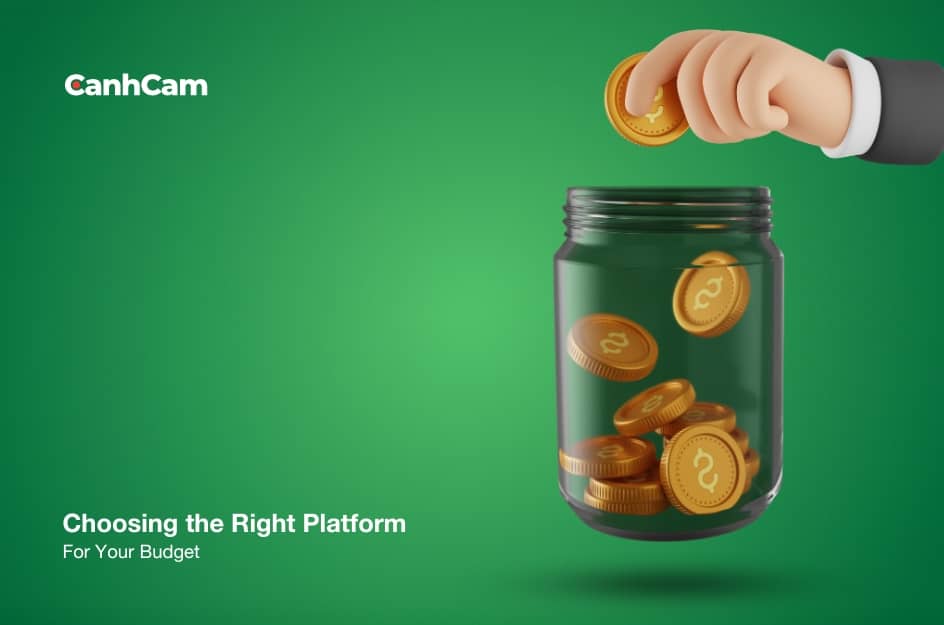Do you have an idea to create your online store? Are you wondering how much it costs to build an ecommerce website? Generally, it is estimated that the cost to create a “basic” e-commerce website starts at around $1,000 - $20,000. Prices increase as the project becomes more complex.
Therefore, an online store can cost anywhere from $6,000 to $8,000 or even reach or exceed $100,000+. Furthermore, the price of creation is supplemented by other costs related to updates, hosting, possible commissions, etc.
Why is there such a price difference? We invite you to learn more about the components that make up a quote for an online sales page.
How Does the Cost to Build an E-commerce Website?
There are many different prices for creating an online store, such as domain names, hosting, SSL, and more that can increase your total costs. Now let's go into details:
1. Register a Domain Name: The address of your digital storefront, the domain name, plays an important role in brand recognition. Domain registration prices typically range from budget to premium, depending on factors such as domain extension and popularity.
- Necessary costs: Domain registration: $10 - $20 per year (Register your store's web address).
- Web Hosting: Hosting serves as the foundation for the existence of your website. Options range from shared hosting, suitable for small-scale functions, to dedicated hosting, which offers excellent performance and reliability.
- Necessary costs: Web hosting: $10 - $200+ per month (Stores your website files and makes it accessible online).
- Cheap hosting: $10 - $25/month (Basic shared hosting, suitable for stores with low traffic).
- Standard Hosting: $25 - $100/month (Shared hosting with better performance and security).
- Premium Hosting: $100 - $200+/month (VPS or dedicated hosting for high-traffic stores).
Visit Our Services: Custom Web Design Melbourne
2. SSL Certificate: Security is paramount in e-commerce. SSL certificates encrypt sensitive information, instilling trust in your customers. Costs vary depending on the level of authentication, with Extended Validation (EV) certificates costing more.
- SSL Certificate: $0 - $200 per year (Encrypts data and builds customer trust).
- Free SSL certificates are available but paid options offer more features and validation.
3. E-commerce Platform Fees: Platform choice significantly impacts costs. Subscription-based models, as seen with Shopify, BigCommerce, and WooCommerce, offer diverse pricing that caters to businesses of all sizes.
- E-commerce platform fee: $29 - $299 per month (Software to support your online store).
- Popular Platforms (Monthly Cost): Shopify: $29 - $299 (Feature-rich, user-friendly).
- BigCommerce: $29 - $299 (Scalable for growing businesses).
- Wix eCommerce: $23 - $500 (Easy drag-and-drop builder, limited features).
- WooCommerce (Free - Requires paid hosting): Highly customizable open source platform but steeper learning curve.

4. Website Design and Development: From DIY themes to bespoke designs, the scope of website design and development entails different costs. Complexity, customization, and functionality determine the price involved in turning your vision into reality.
- Necessary costs: Website design and development: $500 - $$$$ (Varies depending on complexity).
- Basic Design (Theme Customization): $500 - $2,000 (Use pre-built themes with some customization).
- Custom Design: $2,000 - $10,000+ (Unique design that fits your brand and function).
- Advanced Development: $$$+ (Complex features, integrations, custom functionality).
5. Additional Costs: Payment processing fees, marketing tools, and ongoing maintenance costs are integral components to consider that contribute to the total cost of e-commerce ownership.
- Additional costs (Varies): Payment processing fee: 2-3% + transaction fee (Companies like Stripe or PayPal charge a payment processing fee).
- Marketing tools: $0 - $1,000+ per month (Email marketing, SEO tools, advertising). Inventory management software: $0 - $100+ per month (Track your inventory levels).
- Ongoing Maintenance: $50 - $500+ per month (Site updates, security patches, backups).
6. Explain Cost Changes: Understand that e-commerce website costs are not a requirement. Factors such as feature requirements, customization needs, and platform choice have a complex influence on total spend. Visual aids such as tables and infographics help clarify these nuances, supporting informed decision-making.
Budgeting for Your Ecommerce
Define Your Needs: Define your store's scale, product portfolio, and desired functionalities to ascertain realistic cost expectations.
Read more: Content and Commerce - How to Growth your eCommerce Brands
Realistic Cost Ranges: Navigating the realm of e-commerce costs requires a nuanced approach. From basic setups to complex businesses, determine cost ranges ($1,000 - $5,000, $5,000 - $20,000, and $20,000+) to accommodate different business needs. Sample price ranges for different store types:
- Basic Store: $2,000 - $8,000 (Simple design, limited products, budget store). Mid-Size Store: $8,000 - $25,000 (Custom design, more features, standard storage).
- Complex Store: $25,000+ (Highly customizable design, advanced features, premium hosting).
- Remember: These are estimated ranges. The final cost will depend on your specific needs and the complexity of your shop.
Cost Estimator: To forecast costs appropriately, leveraging interactive costing tools can prove invaluable. Providing readers with access to such tools will enhance their planning process, promoting more accurate budgeting strategies.

Budgeting tips: Optimizing your e-commerce budget requires strategic allocation. Prioritize essential features, anticipate future growth, and allocate contingency funds to navigate unforeseen costs seamlessly.
Choose the Platform that Fits your Budget
Compare popular platforms: Choosing the ideal e-commerce platform depends on tailoring features to budget constraints. Conducting head-to-head comparisons between prominent platforms will facilitate informed decision-making.
Among the popular platforms, Shopify offers multiple plans starting at $29 per month, catering to beginners, and going up to $299 for advanced features. Known for its user-friendly interface and extensive app ecosystem, Shopify provides a solid foundation for a variety of business sizes.
BigCommerce, with plans ranging from $29 to $299 per month, is known for its scalability, making it ideal for growing businesses. Its powerful integration features and flexibility help sellers seamlessly expand their online presence.
Wix eCommerce features an intuitive drag-and-drop builder, offering plans from $23 to $500/month. While it provides an easy entry point for beginners, its feature limitations can pose a challenge for businesses looking for advanced functionality.

For those inclined towards flexibility and customization, WooCommerce, an open-source platform, offers a cost-effective solution. While the platform itself is free, hosting and additional extensions may incur costs, making it suitable for technically advanced businesses looking for high variables.
Decision-making guide
Tailored to individual preferences, these resources streamline platform selection based on budget considerations, technical proficiency, and necessary business requirements.
Save Money on Your E-commerce Website
DIY versus development: Discuss the pros and cons of building your website versus hiring a developer, including estimated costs for each method. While DIY solutions may initially seem cost-effective, investing in professional development can pay long-term benefits in scalability and user experience.
Free and paid features: Explain how platforms offer basic features for free along with paid upgrades for advanced functionality. Provide a cost-benefit analysis for each option, emphasizing the value of paid features in enhancing the customer experience and driving conversions.

Find affordable resources: Recommended resources to find high-quality, affordable freelance themes, plugins, and developers. Platforms like ThemeForest and Upwork offer a plethora of options that meet different budget constraints, allowing businesses to achieve their desired results without breaking the bank.
Grow your E-commerce Business
Discuss ongoing costs related to marketing, advertising, customer support, and potential inventory management software. Briefly discuss strategies to minimize ongoing costs and maximize return on investment.
As your e-commerce venture gains traction, investing in marketing and advertising becomes necessary to drive traffic and increase conversions. Use cost-effective channels like social media marketing, email campaigns, and search engine optimization to expand your reach without exceeding your budget.
Conclusion
Understanding the intricacies of ecommerce website costs is paramount for embarking on a successful online venture. By comprehensively evaluating the various cost components, defining realistic budgets, and leveraging cost-effective solutions, you lay the foundation for sustainable growth and profitability.

